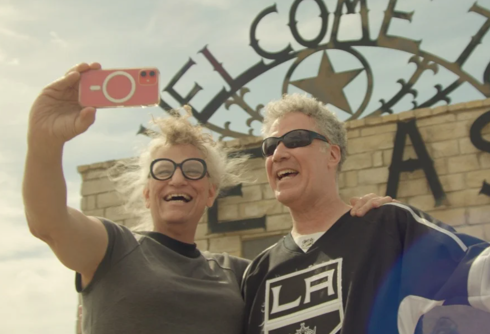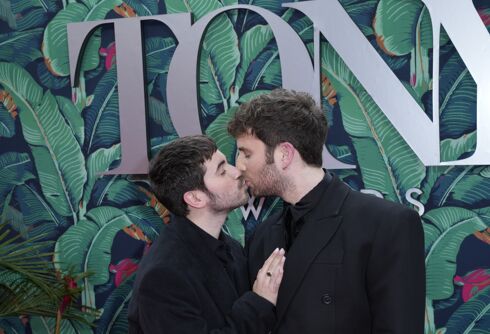Will Ferrell suggested that he regrets his 1997 impression of then-Attorney General Janet Reno on Saturday Night Live.
The actor and best friend and frequent collaborator Harper Steele were on the latest episode of The New York Times’ podcast The Interview to talk about their new film, Will & Harper, and their long friendship. The documentary, currently in select theaters and arriving on Netflix September 17, follows Ferrell and Steele, who came out as trans in 2021, on a road trip across the U.S. and has been lauded by critics as a moving and quite funny portrait.
Related:
Will Ferrell’s road trip with his trans friend will make you cry in “Will & Harper”
The new documentary about a writer’s transition and her friendship with comedian Will Ferrell is moving and timely.
Ferrell and Steele met in 1995, when they were both hired to work on Saturday Night Live, Ferrell as a member of the show’s cast and Steele as a writer. The two became close friends and collaborated frequently, later co-writing the 2020 comedy Eurovision Song Contest: The Story of Fire Saga.
Never Miss a Beat
Subscribe to our newsletter to stay ahead of the latest LGBTQ+ political news and insights.
On The Interview, host David Marchese asked how SNL has evolved since their time at the long-running NBC sketch comedy series.
“I feel like it’s more inclusive,” Steele said. “The staff and the cast feels a little more inclusive than in our era.”
“That’s changed for sure,” Ferrell agreed.
Marchese then asked if there was anything from their time on SNL that makes Steele and Ferrell cringe now. “I think, I’d have to go back and actually review shows, but I’m sure there’d be a fair amount where you lament the choice,” Ferrell said.
Marchese noted that Ferrell’s Reno impression “hits a false note now.” The 1997 skit “Janet Reno’s Dance Party” saw Ferrell performing in drag as the Clinton-era attorney general with an exaggeratedly deep voice and awkward attempts to relate to teens.
“Yeah, that’s something I wouldn’t choose to do now,” Ferrell admitted.
“This kind of bums me out, though,” Steele chimed in. “This is something that I actually feel a little bit differently about it.”
“I understand the laugh is a drag laugh,” she continued. “It’s the ‘Hey, look at this guy’s gotten in a dress and that’s funny.’ It’s absolutely not funny. It’s absolutely a way that we should be able to live in the world.”
At the same time, Steele explained, she has conflicting feelings about what is acceptable when it comes to depictions of LGBTQ+ people in comedy.
“This is an interesting question to me: Do queer people like The Birdcage, or do they not like it?” she said, referencing the 1996 film in which Robin Williams played a gay Miami nightclub owner. “Robin Williams, at least as far as we know, was not a gay man, and yet he spent about a half of his comedy career doing a swishy gay guy on camera. Do people think that that’s funny, or is it just hurtful? And I’ve heard from gay men that it was funny, and I’ve heard from gay men that it was hurtful, and I understand both.”
“I am accusably purple-haired woke,” she added. “But I do wonder if sometimes we take away the joy of playing when we take away some of the range that some performers, especially comedy performers, can do.”
Steele’s indirect comparison of the two performances is interesting. She correctly critiques Ferrell’s impression of Reno for being just that: an impression meant, at least in part, to poke fun both at the idea of a man in a dress and at Reno’s perceived failure to adequately live up to strict gender norms.
By contrast, Williams’ performance in The Birdcage may rely on what some may perceive as gay “stereotypes,” but it was never meant to ridicule men like his character. A longtime gay ally, Williams fully embodied a certain type of gay man in the film, and at the root of his performance was the idea that his character’s self-presentation, his way of being in the world, his swishiness, is valid. His performance invites us to laugh at his character not in ridicule, as Ferrell’s Reno impression does, but in recognition and solidarity.
Don't forget to share:














